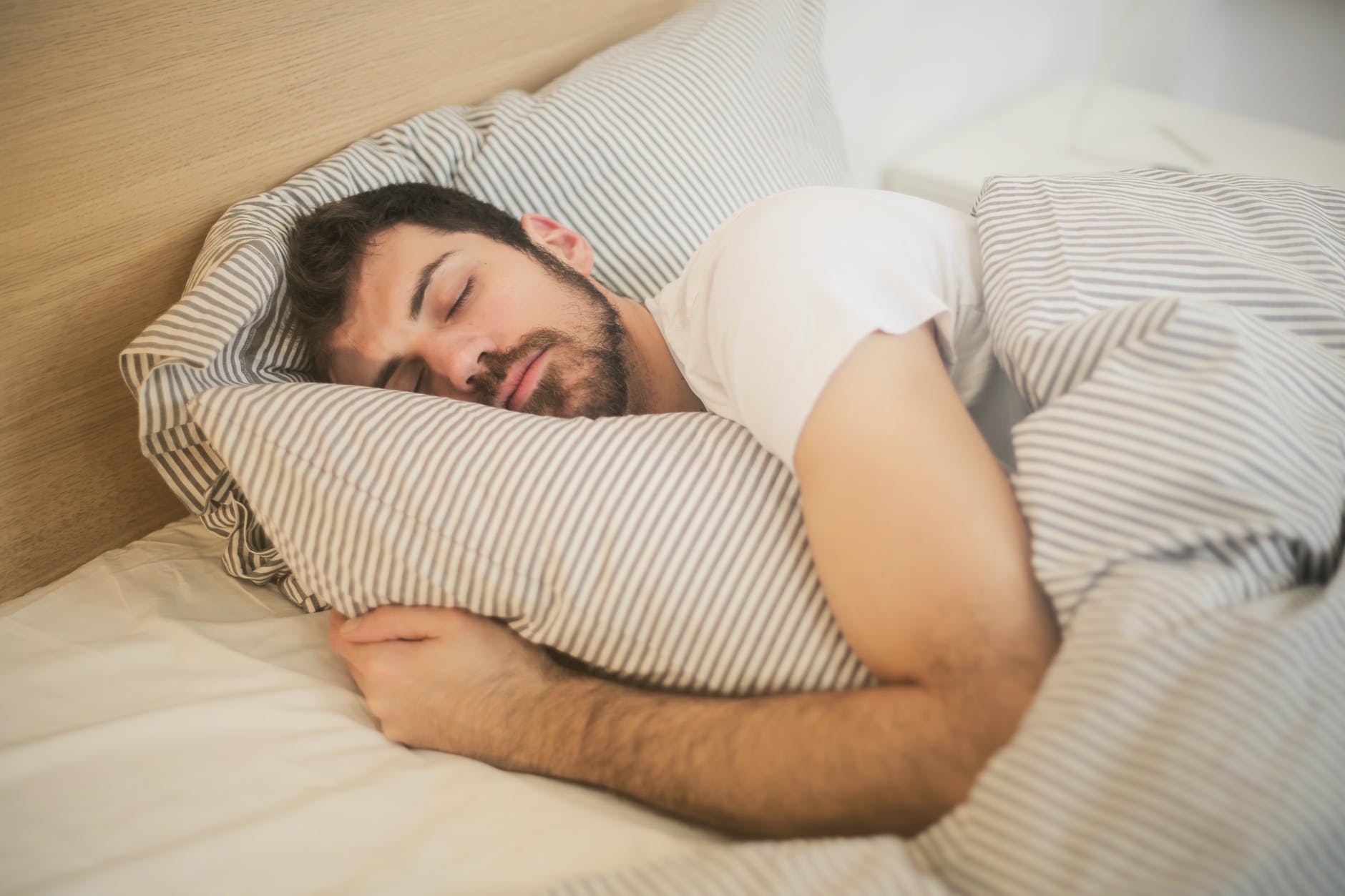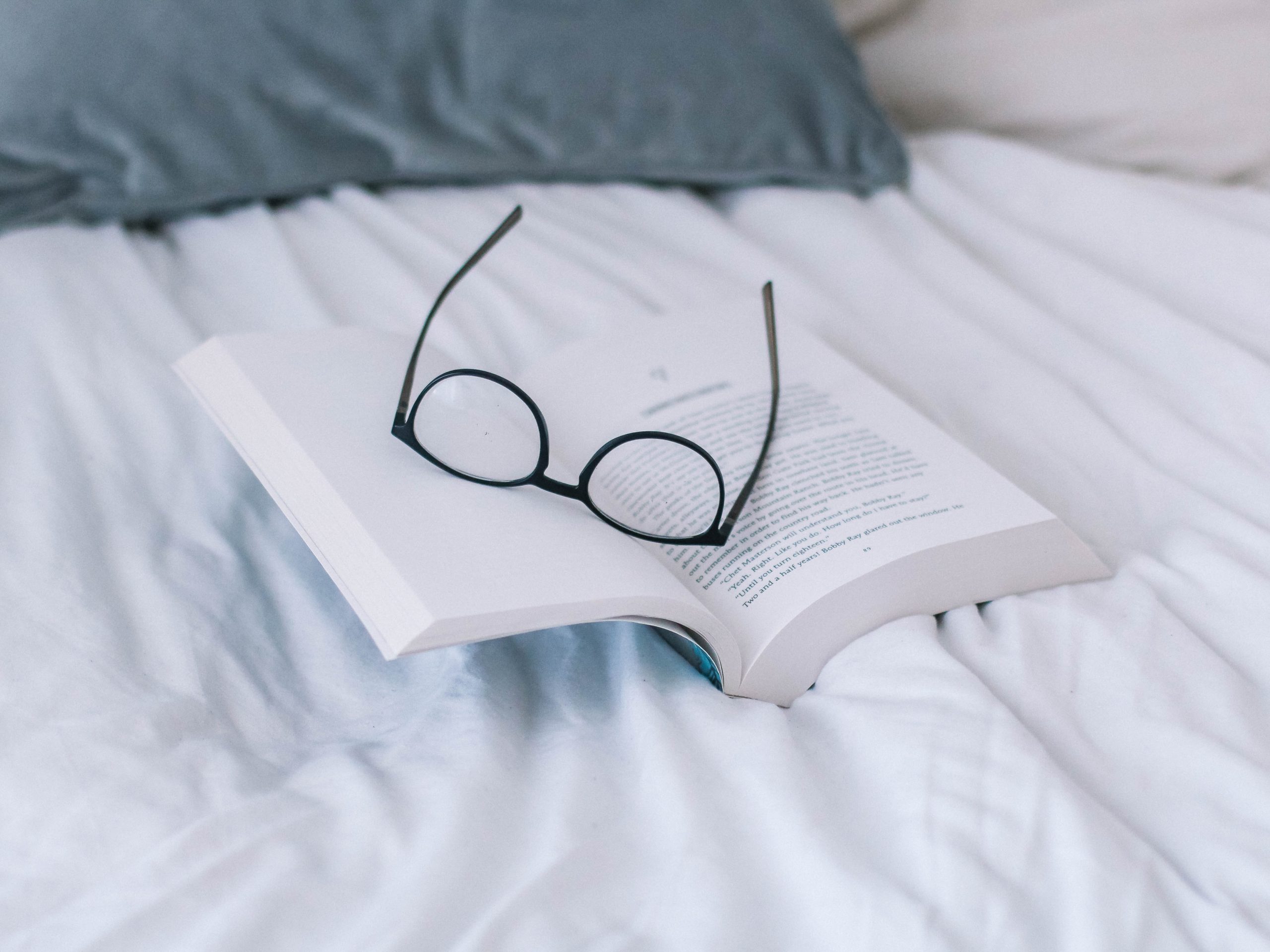It doesn’t matter what age you are, getting a good night’s rest is essential for your physical and mental health. Taking the time to recharge every night is especially vital because sleep and brain health are closely related. However, as we age, sleep doesn’t always come as easily as it used to.

In a 2003 poll, the National Sleep Foundation found that over 48% of older adults experience symptoms of insomnia more than twice a week, and the National Institute on Aging reported that insomnia is one of the most common problems experienced by adults aged 60 and over.
Insomnia and sleep disruptions have been known to worsen health conditions like Alzheimer’s disease and increase your risk factors for developing other health problems, including heart disease, Type-2 diabetes, and hypertension. Let’s dig into the science behind sleep and what are our five best tips for a good night’s rest!
Why sleep is so important to our bodies
Sleep gives your body some much-needed rest, but it’s also vital for maintaining your cognitive health. When you lie down to sleep at night, your body takes this time to cleanse your brain of toxins and waste. The space between your brain cells actually enlarges during sleep, allowing your body to wash out harmful substances like beta-amyloid proteins, which researchers have linked to the formation of Alzheimer’s disease. It follows, then, getting enough sleep can help ward off Alzheimer’s disease.
A poor night’s sleep has also been tied to forgetfulness and lapses in memory. Because sleep is the vital period when our brains take time to consolidate our memories, not getting adequate sleep makes you more likely to forget things during the day. A good night’s rest is one of the most powerful weapons in your arsenal in the fight against mental aging.
Why getting enough rest is more difficult as we age
Production of the “sleep hormone” melatonin naturally decreases with age, making it harder for older adults to fall asleep and stay asleep. The aging process also causes changes to the body’s natural circadian rhythm, which can make you get tired earlier than usual. Because of this, older adults are also more likely to experience restless sleep and waking up throughout the night.
Environmental factors can also be to blame, such as stress or a lack of structure in your life. Recent retirees sometimes have a hard time adjusting to changes in their schedule, which can lead to fitful sleep.
How to get a good night’s sleep: build healthier sleep habits
Now that you know why a good night’s sleep is so vital, you’re probably wondering how you can improve the quality of your own rest. If you struggle with tossing and turning or restless nights, don’t worry. The good news is that healthy sleep habits are universal and can be practiced by anyone of any age.
It’s never too late to establish a healthy nighttime routine! Here are our 5 best tips to help you combat insomnia, in no particular order.
Work up a sweat
Exercise helps to keep you in good shape, but did you know that exercising can also improve your sleep? The Sleep Foundation has demonstrated a clear link between exercise and improved sleep quality in adults. Try using a fitness tracker, which can be useful to show your progress and motivate you. To rest easier at night, try going for a brisk walk or bike ride outside. Exposing yourself to sunshine and fresh air can improve circadian rhythm, so you can stay active with your favorite outdoor hobbies like gardening and fishing. Just be careful not to exercise too late in the day–getting worked up too close to bedtime may actually keep you awake!
Don’t nap during the day
Napping is common among older adults and retirees, with research showing that around 25% of older adults take naps daily. But did you know that your daily power nap may actually be doing more harm than good?
It’s true. While a brief nap can be beneficial for a boost of energy, excessive napping can disrupt your circadian rhythm and make it harder to fall asleep at night. If you absolutely must have a nap, try to take it earlier in the day and make sure to sleep for no more than 30 minutes.

Establish a bedtime routine
Human beings are creatures of habit, so practicing good habits before bed can help improve your rest. If you don’t already have one in place, try establishing a nightly routine before drifting off to sleep.
You can engage in soothing activities like taking a bath, reading a book or meditating to relax before bed. Sleep comes easier in a cold room, so make sure that your bedroom is cool before you lie down. Always try to fall asleep at roughly the same time every night to establish routine, and make sure that you fall asleep while lying in bed–not in a recliner or on the couch.
Turn off the TV
Although many of us like to fall asleep with the glow of the TV to keep us company, staring at screens before bed can actually disrupt your sleep. The blue lights found in common electronic devices like smartphones, tablets, TVs and computers can disrupt your natural circadian rhythm. That’s why experts recommend cutting out all screens and electronic devices before going to bed.
A few hours before your usual bedtime, turn off all your TVs and power down your tablets, phones and laptops. You can replace time in front of the TV with screen-free activities like doing a jigsaw puzzle, playing cards or drawing in an adult coloring book. Instead of sleeping with your phone on your bedside table, try plugging it up to charge in another room. You’ll be less likely to check for texts or emails in the middle of the night and can rest more peacefully.
Cut back on caffeine and other foods
Eating or drinking certain things too close to bed can cause sleep problems. Foods high in caffeine like coffee and chocolate have been shown to disrupt sleep patterns and interfere with melatonin production. Drinking alcohol late at night also could lead to restless sleep because it can cause decreased REM sleep. Never use alcohol as a sleep aid.
If you can’t do without your morning coffee, that’s perfectly all right. Just make sure that it stays a morning cup. Avoid consuming coffee in the afternoon and eating large meals too close to bedtime. Don’t drink too much water before bed, either, if waking to go to the bathroom is a problem for you. If you must eat before bed, try having something to boost your melatonin, like a handful of almonds or a cup of tart cherry juice.
The bottom line
Along with diet and exercise, getting a good night’s sleep is one of the most important things you can do to maintain a healthy mind and body.
If you’ve tried all these tips and nothing works, check with your doctor to see if one of your medications or an underlying health problem may be to blame. Insomnia can sometimes be a symptom of a more serious issue.
Sleep is just one of many tools on your belt you can use to live your best life possible, so try to rest well every night!
Originally printed on aviv-clinics.com. Reprinted with permission.
Aaron Tribby, M.Ed is Head of Physiology for Aviv Clinics where he is responsible for managing a team of physiologists, physical therapists, dietitians, and stress technicians at Aviv Clinics – the first hyperbaric medical treatment center of its kind in North America dedicated to improving brain performance. He also oversees the cardiopulmonary exercise tests and CPET in the clinic, responsible for analyzing each test. Leading to Aviv Clinics, his clinical experience is focused on health and wellness, strength and conditioning and nutrition within both the non-profits and private sectors including Mercy Hospital and MusclePharm, respectively.
References
- Goldman, Bruce. “Scientists Reveal How Beta-Amyloid May Cause Alzheimer’s.” Stanford Medicine News Center, 19 Sept. 2013, med.stanford.edu/news/all-news/2013/09/scientists-reveal-how-beta-amyloid-may-cause-alzheimers.html.
- “A Good Night’s Sleep.” National Institute on Aging, U.S. Department of Health and Human Services, 3 Nov. 2020, www.nia.nih.gov/health/good-nights-sleep#insomnia.
- Hatfield, Heather. “How Tv, Internet, and Other Electronic Devices Impact Sleep.” WebMD, WebMD, 7 Dec. 2007, www.webmd.com/sleep-disorders/features/power-down-better-sleep.
- “Here Are the Effects of Sleeping in a Cold Room.” Sleep Advisor, 2 June 2020, www.sleepadvisor.org/sleeping-in-a-cold-room/.
- Mann, Denise. “Alcohol and a Good Night’s Sleep Don’t Mix.” WebMD, WebMD, 22 Jan. 2013, www.webmd.com/sleep-disorders/news/20130118/alcohol-sleep.
- “Melatonin Production and Age.” Chronobiology.com, 18 June 2020, www.chronobiology.com/melatonin-chronobiology/melatonin-production-age/.
- Miller, R. “Meditation and Brain Health: Benefits Backed by Science.” Aviv Clinics USA, 23 May 2021, aviv-clinics.com/blog/brain-health/meditation-and-brain-health-benefits-backed-by-science/.
- Newsom, Rob, and John DeBanto. “Aging and Sleep: How Does Growing Old Affect Sleep?” Sleep Foundation, 23 Oct. 2020, www.sleepfoundation.org/aging-and-sleep.
- Pacheco, Danielle, and Abhinav Singh. “How Can Exercise Affect Sleep?” Sleep Foundation, 22 Jan. 2021, www.sleepfoundation.org/physical-activity/exercise-and-sleep.
- Shilo, Lotan, et al. “The Effects of Coffee Consumption on Sleep and Melatonin Secretion.” Sleep Medicine, U.S. National Library of Medicine, May 2002, pubmed.ncbi.nlm.nih.gov/14592218/.
- Steakley, Lia, et al. “Having Trouble Sleeping? Research Suggests Spending More Time Outdoors.” Scope, Logo Left ContentLogo Right Content 10,000+ Posts Scope Stanford University School of Medicine Blog, 30 July 2019, scopeblog.stanford.edu/2015/08/24/having-trouble-sleeping-research-suggests-spending-more-time-outdoors/.
- Tribby, Aaron. “Is a Fitness Tracker Right for You? Weighing the Pros and Cons.” Aviv Clinics USA, 14 June 2021, aviv-clinics.com/blog/body/is-a-fitness-tracker-right-for-you-weighing-the-pros-and-cons/.
- Xie, Lulu, et al. “Sleep Drives Metabolite Clearance from the Adult Brain.” Science, American Association for the Advancement of Science, 18 Oct. 2013, science.sciencemag.org/content/342/6156/373.full.
